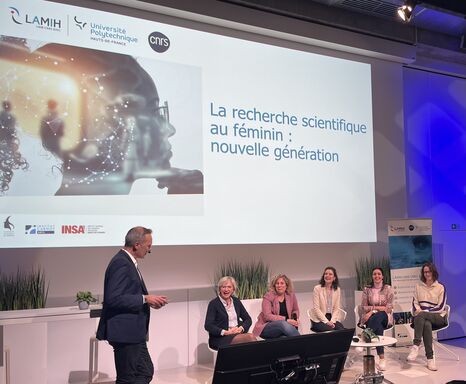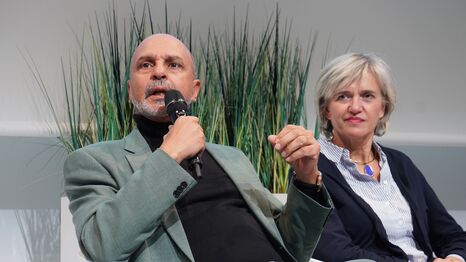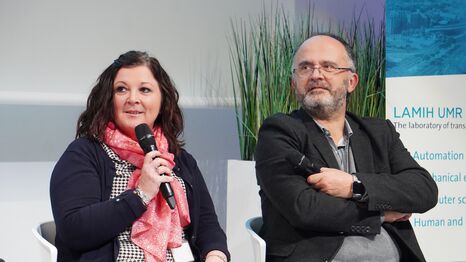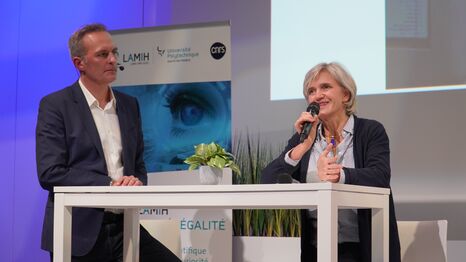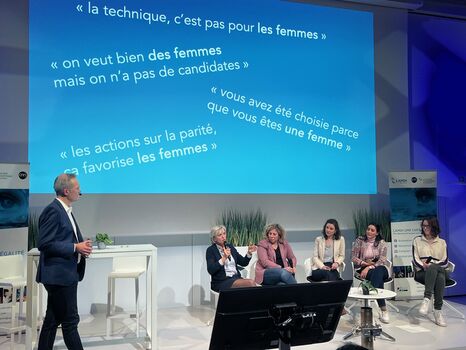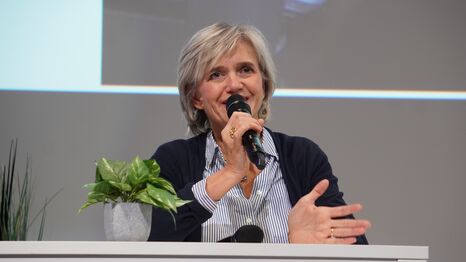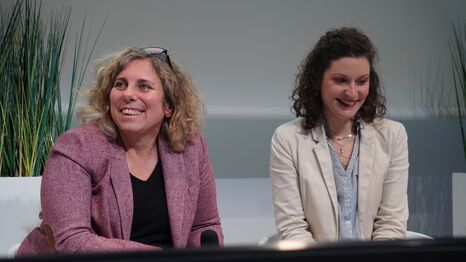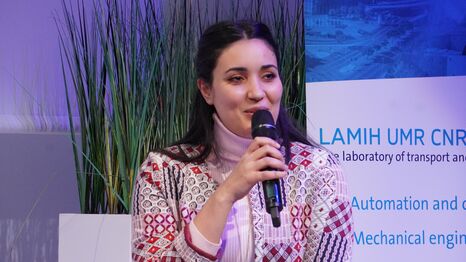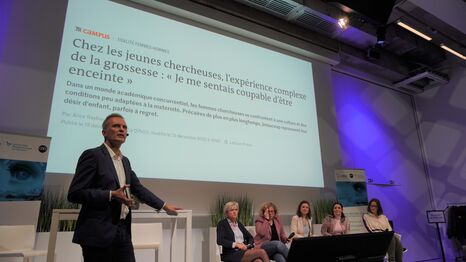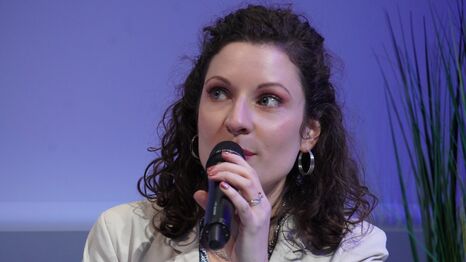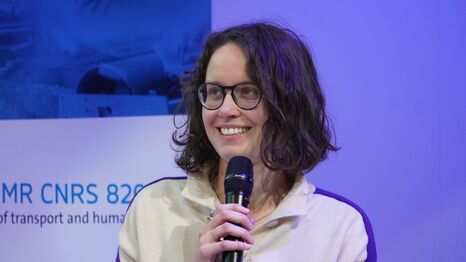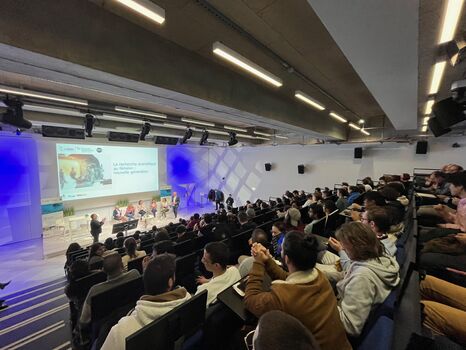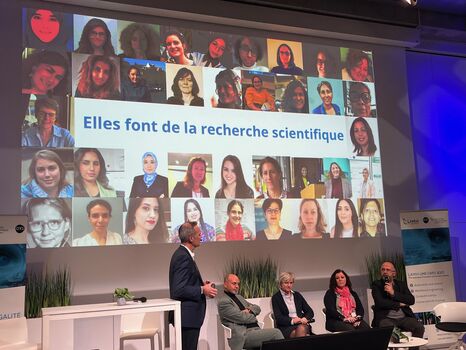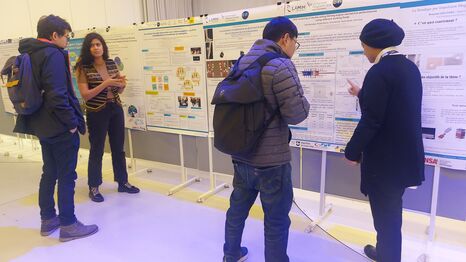
A look back at the "Women in scientific research: a new generation" seminar
The 3rd edition of "La recherche Scientifique au féminin" took place on November 29.
The event, organized by the Parité-Egalité Commission of LAMIH UMR CNRS 8201, brought together no fewer than 186 students from INSA Hauts-de-France as well as male and female researchers from LAMIH.
The 3rd edition of "La recherche Scientifique au féminin" took place on November 29.
The event, organized by the Parité-Egalité Commission of LAMIH UMR CNRS 8201, brought together no fewer than 186 students from INSA Hauts-de-France as well as male and female researchers from LAMIH.
In the presence of Adeline Nazarenko, Director of the CNRS Sciences informatiques Institute, Abdelhakim Artiba, President of UPHF, Laurent Dubar, Director of LAMIH and Sonia Duval, Deputy Regional Delegate of CNRS Hauts-de-France, this new edition, centered around the new generation, was a moment of sharing between female researchers of all ages and backgrounds.
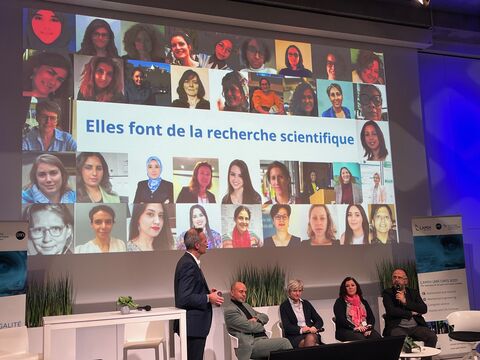
The event began with an interview with Madame Nazarenko to retrace her life's journey.
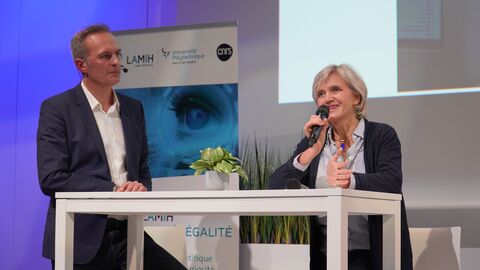
Adeline Nazarenko has an exceptional career combining both humanities and computer sciences. "I've always loved science and the humanities," she declares. After a scientific baccalauréat, she chose to do a "literary prep school". She then passed the agrégation in modern literature, before obtaining a DEA in computer science (the equivalent of a Master's degree). An expert in automatic language processing (all the software used to manipulate spoken and written language, with one of the best-known examples being CHATGPT), she was awarded a médaille de bronze du CNRS at the age of 38, when she was still a Maitre de conférences. In 2022, she was appointed Director of one of the 10 CNRS institutes.
This was followed by a round-table discussion bringing together junior and more experienced female researchers to share their experiences and motivate the younger generation to dare to embark on a scientific career, by showing them, by example, that women have their place(s) in it.
This round table featured Adeline Nazarenko but also Céline Morin, University Professor, researcher in mechanics at LAMIH and head of international relations at INSA Hauts-de-France, Cécilia Daquin Lecturer in automatic control at LAMIH, Elvina Derhille Doctoral student in mechanics at LAMIH and Chaîma Zormati Doctoral student in computer science at LAMIH.
They presented their research work with a strong societal focus, such as green logistics based on the circular economy, waste recovery, depollution, computer processing of languages or more specifically flow control in helicopter landing zones on military frigates.
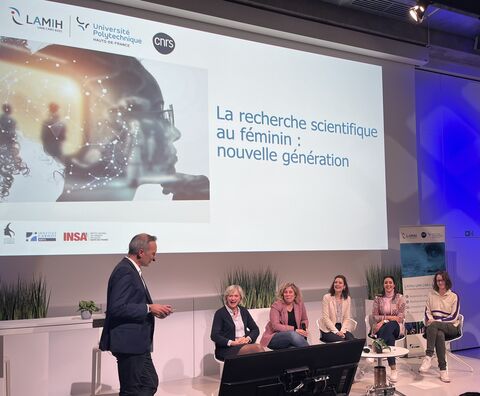
Yes, it is possible to be a woman, to do scientific research, to be Director of an Institute, Vice-President of a university, Deputy Director of an engineering school, responsible for international relations!
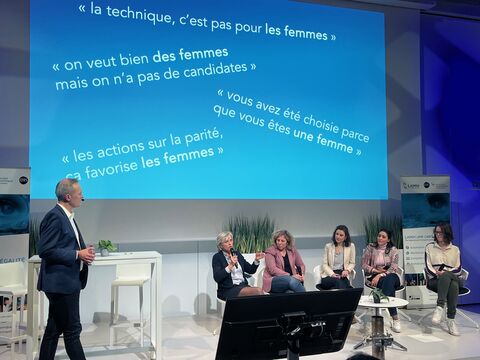
Adeline Nazarenko shares some advice: First of all, "do what you want to do, you only do well what you have a taste for, enthusiasm for". Yes, everything isn't always easy, there are failures but you shouldn't be afraid of failure, you can handle it and bounce back. You have more regrets about not having dared than about having failed. You have to trust yourself and finally she shares, "ladies, beware of all the messages, negative advice or warnings that anyone can give you."
Some people do indeed share their own fears and even unconsciously compete with each other in order to dissuade someone from being ambitious. But make no mistake: these negative messages come from everyone, whether you're male or female.
Cécilia Daquin agreed: when she told her parents she wanted to become a lecturer, their 1st reaction was: "Ah, are you sure? Can you manage it? Wouldn't you rather be a teacher and look after your children? Despite this, she married the career she wanted, namely to become a teacher and researcher.
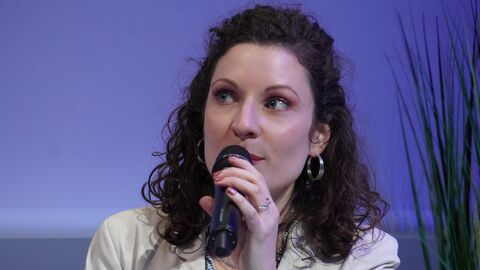
In order to successfully combine a private life with a highly responsible professional life, Adeline Nazarenko reminds us that we need to "keep priorities in mind, set ourselves safeguards and not become consumed by what we do, not forgetting that "the best is the enemy of the good".
Adeline Nazarenko clarifies her experience: we hear more women turning down positions of responsibility because they imagine they won't do it well, or they wonder about the merit of recognition, that famous impostor syndrome. When a woman refuses to take on responsibility for these reasons, we need to understand it and do something about it.
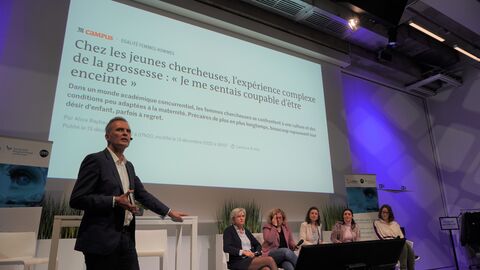
A discussion then got underway on the subject of pregnancy: "I can't get pregnant now, not during my thesis, not during my post doc..." and if it's not the woman herself who asks this question, it's the supervisors who mention it. Faced with this question Stéphanie Barbez, Communications Manager at CNRS Hauts-de-France and gender equality correspondent, leaps up "there's a real problem on this subject, it's the whole system that needs to change on parenthood: only women ask themselves this question. No man ever says to himself, 'Well, I'm not going to take on any professional responsibilities because I'm going to have a child!" and what's more, for women, there's the biological "tic tac".
"Society as a whole needs to change its point of view on parenthood". Adeline Nazarenko stresses that it's the role of the manager, the supervisor, to manage these issues, to accompany, to help. She also points out that in her laboratory, a PhD student whose research supervisor is pregnant is offered mobility, in particular to lighten the supervisor's mental load.
.Concerning the notion of positive discrimination, Adeline Nazarenko declares "ceasing to be favored, does not mean being disadvantaged". Céline Morin gives her position: "I refuse to go to a thesis jury because a woman is needed if I consider that it's not in my field."
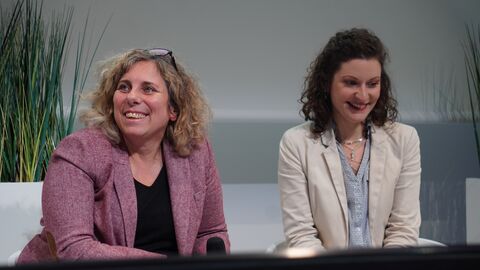
Finally, if we want to move the lines, we need to deconstruct stereotypes. "We all wear stereotypes". As Sonia Duval points out, "Equality must be inculcated at school", we must no longer convey stereotypes from an early age such as "dance is for girls".
Laurent Dubar closes the seminar by inviting the audience to continue the exchanges over cocktails, during which it is possible to discover posters of doctoral student research.

